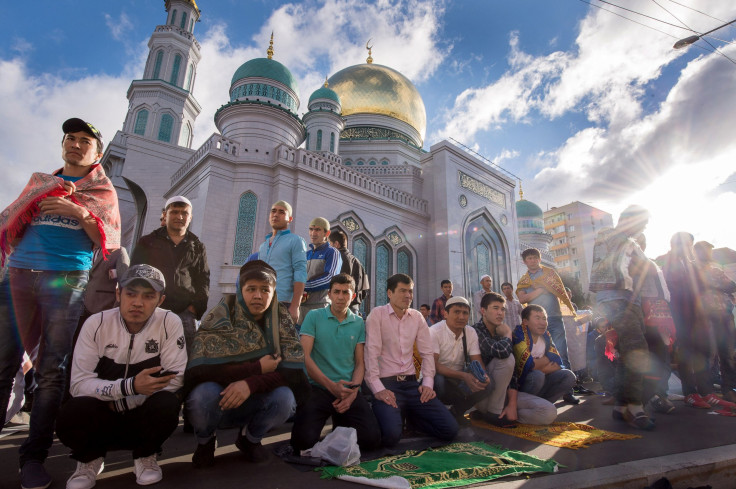Ramadan 2017: Fasting Rules And Survival Tips For Muslim Holy Month

As the holy month of Muslims, Ramadan starts, millions around the world are preparing themselves for fasting from sunrise to sunset. Ramadan, which depends on moon sighting, will begin either May 27 or May 28. Muslims believe Ramadan is a time to improve moral character and focus on positivity.
The month of intense prayer, dawn-to-dusk fasting, and nightly feasts, starts on different dates every year. In the U.S., the Fiqh Council of North America announced that Ramadan would be observed from May 27, based on astronomical predictions. Europe too will observe Ramadan from May 27 as per the European Council for Fatwa and Research, and the Islamic Relief UK charity.
During this time, there are two greetings people can use: Ramadan Mubarak or Ramadan Kareem. Both are correct and can be used interchangeably, they just mean different things. Mubarak is a request that Ramadan be blessed and kareem is a request for Ramadan to be generous.
The Muslim holy month of Ramadan is expected to begin May 27 https://t.co/LfNQ59ffRD pic.twitter.com/xjw0T7QERG
— Al Jazeera English (@AJEnglish) May 25, 2017
Ramadan will end June 24 after the moon sighting. The day is celebrated by Muslims worldwide and is known as Eid al-Fitr .
Read: Why Does Ramadan Start On Different Dates Every Year?
Fasting, which is called "sawm" in the Quran, is a unique moral and spiritual characteristic of Islam. Muslims participating in Ramadan will abstain "completely" from food, drinks, intimate intercourse, and smoking before the break of the dawn till sunset during the entire month, according to Islamic Society of Rutgers University (ISRU).
During the holy month of Ramadan, it is common for mosques to host large meals, especially for the poor and needy https://t.co/3PvT2bzjjn pic.twitter.com/6UdcRiDAvP
— Al Jazeera English (@AJEnglish) May 24, 2017
Fasting is obligatory for every sane, healthy Muslim who has reached puberty and is not traveling during the time of fasting. Women who are menstruating or having post-childbirth bleeding can be excluded from fasting during Ramadan.
Following practices should be observed during Ramadan, according to Prophet Muhammad:
1) Have a light meal before the break of the dawn, known as "Suhoor." The best time for "suhoor" is the last half hour before dawn or the time for Fajr prayer.
2) Consume"iftar", which is the meal for breaking the fast, immediately after sunset. According to Shariah, sunset is the time when the disk of the sun goes below the horizon and disappears completely.
3) Break the fast by either drinking plain water or eating a few dates right after sunset while chanting the prayer "Allah humma laka sumna, wa 'ala rizqika aftarna." (O God! for Your sake have we fasted and now we break the fast with the food You have given us).
4) Make your meals as light as possible.
5) Observe the supererogatory prayer known as "Taraweeh."
6) Exchange social visits and intensify humanitarian services.
7) Study and recite the Quran because it is believed that the revelation of Quran began during this time, and Angel Gabriel used to review the holy book with Prophet during this month.
8) Be patient and humble.
9) Be more cautious in using one's senses, mind, and tongue. One should also abstain from careless gossip during the holy month.
Fasting during Ramadan can get rigorous. During long and hot summer days, it may be required to observe the fast for as long as 16 hours at a stretch. Following are some of the tips to ensure adequate nutrition and continued good health:
1) Prior to Ramadan, a Muslim should always consult with a doctor if he/she could observe the fast.
2) Plan your schedule and meals ahead of time in order to ensure you get sufficient nutrients and hydration.
3) During the hottest part of the day, stay in cool areas (indoors or in shade preferably) and limit your physical activity.
4) Sip water throughout the evening, at least try to have eight glasses by bedtime.
5) Organize your schedule in such a way that you get enough sleep.
© Copyright IBTimes 2024. All rights reserved.












